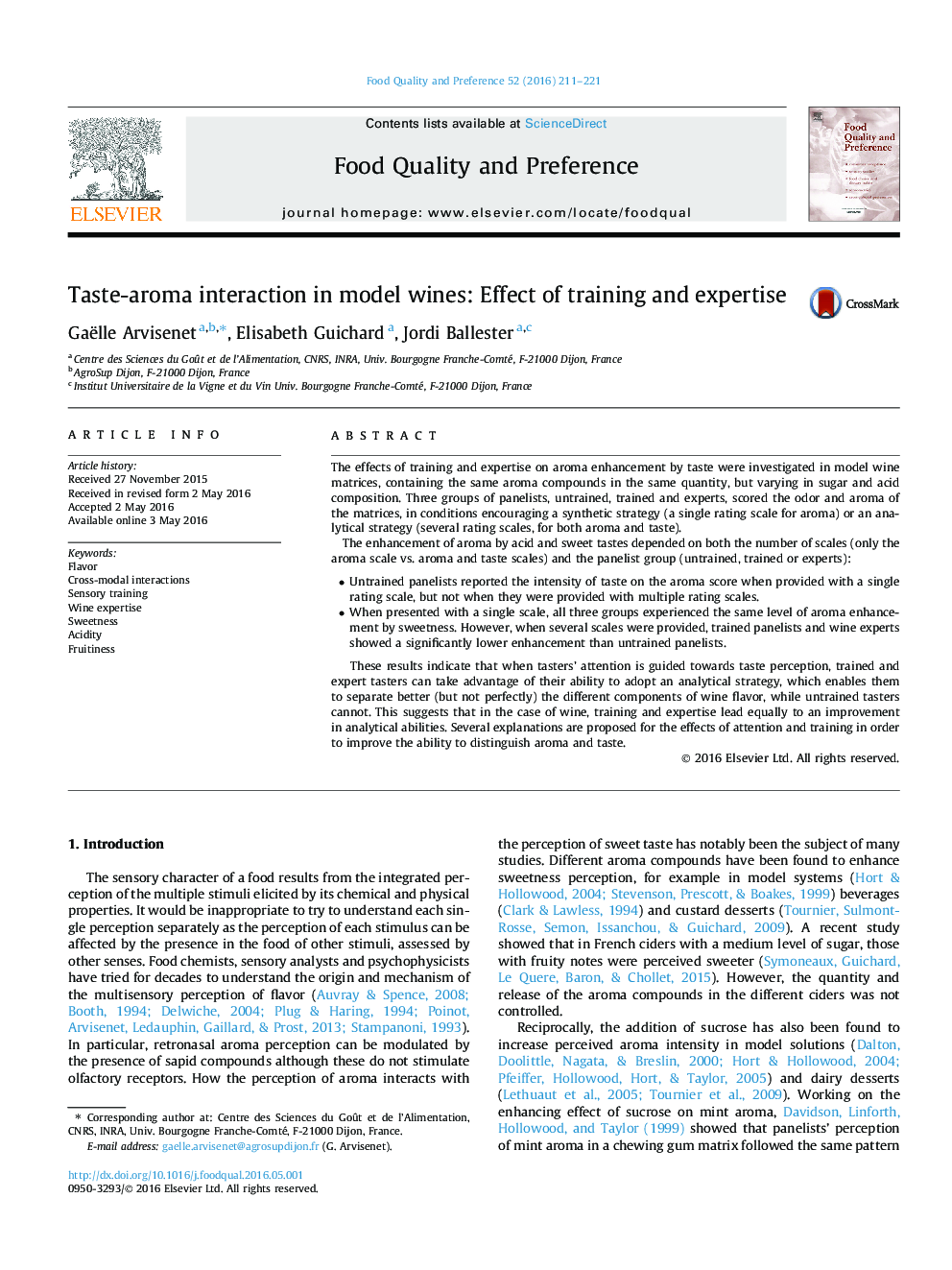| کد مقاله | کد نشریه | سال انتشار | مقاله انگلیسی | نسخه تمام متن |
|---|---|---|---|---|
| 6261064 | 1613147 | 2016 | 11 صفحه PDF | دانلود رایگان |
- The origin of taste-aroma interactions was studied in model wine matrices.
- The observed differences in the aroma release did not induce a perceptual difference.
- We compared untrained, trained and expert panels for aroma-taste sensory interactions.
- Effects of attentional strategy were observed on the increase of aroma by taste.
- Aroma enhancement by taste was higher for untrained subjects.
The effects of training and expertise on aroma enhancement by taste were investigated in model wine matrices, containing the same aroma compounds in the same quantity, but varying in sugar and acid composition. Three groups of panelists, untrained, trained and experts, scored the odor and aroma of the matrices, in conditions encouraging a synthetic strategy (a single rating scale for aroma) or an analytical strategy (several rating scales, for both aroma and taste).The enhancement of aroma by acid and sweet tastes depended on both the number of scales (only the aroma scale vs. aroma and taste scales) and the panelist group (untrained, trained or experts):
- Untrained panelists reported the intensity of taste on the aroma score when provided with a single rating scale, but not when they were provided with multiple rating scales.
- When presented with a single scale, all three groups experienced the same level of aroma enhancement by sweetness. However, when several scales were provided, trained panelists and wine experts showed a significantly lower enhancement than untrained panelists.These results indicate that when tasters' attention is guided towards taste perception, trained and expert tasters can take advantage of their ability to adopt an analytical strategy, which enables them to separate better (but not perfectly) the different components of wine flavor, while untrained tasters cannot. This suggests that in the case of wine, training and expertise lead equally to an improvement in analytical abilities. Several explanations are proposed for the effects of attention and training in order to improve the ability to distinguish aroma and taste.
Journal: Food Quality and Preference - Volume 52, September 2016, Pages 211-221
